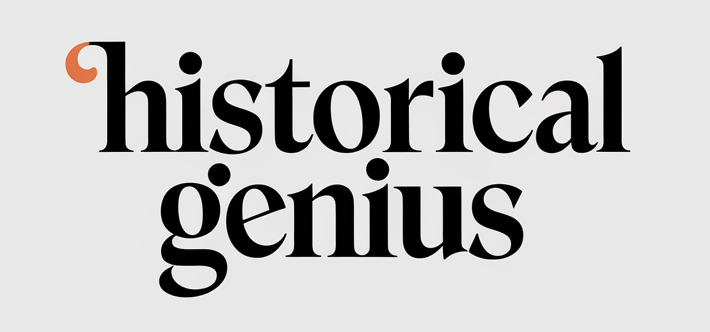Whether it was building towering temples, launching epic wars, or deciding what you could wear on Tuesdays, religion has always played a huge role in shaping history. Faith wasn’t just personal—it was political, social, and deeply tied to who held the power and how they used it. This article looks at how religion didn’t just influence hearts and minds but rewrote entire rulebooks, rewired empires, and redrew maps. Let’s explore the moments when belief took the wheel and changed the course of history.
Ancient Egypt Mixed Gods With Government
In ancient Egypt, religion wasn’t just a weekend thing—it was the entire job description of the pharaoh. These rulers weren’t just kings; they were considered divine, the living link between gods and humans. Temples were economic powerhouses, and priests held serious influence. Daily life was filled with rituals, offerings, and festivals to keep the gods happy and the Nile flowing. If something went wrong? Clearly someone upset a deity.
Hinduism Shaped Empires With Cosmic Order
In South Asia, Hinduism wasn’t just about worship—it offered a full blueprint for society. The concept of dharma (duty) and the caste system created a structured social order that empires like the Maurya and Gupta used to organize their rule. Temples became both spiritual and economic centers, and rulers often aligned themselves with divine legitimacy. Gods were everywhere—from public art to royal politics—and it kept the system running smoothly (for some more than others).
Buddhism Traveled Far and Changed Along the Way
What started with one man under a tree in India quickly became a global philosophy. Buddhism spread through trade routes like the Silk Road and took root in places like China, Japan, and Southeast Asia. It adapted to local cultures, shaped art and literature, and influenced entire kingdoms. From Ashoka’s peaceful edicts to massive stone Buddhas in Bamiyan, this religion left a spiritual and literal mark across continents.
Judaism Held Strong Through Exile and Empire
One of the oldest monotheistic religions, Judaism endured through conquests, exile, and empire after empire. From Babylon to Rome, Jewish communities often found themselves on the margins but held tight to their identity, laws, and traditions. Their resilience helped preserve culture, texts, and history even under pressure. It wasn’t just about survival—it was about continuity, influence, and shaping broader monotheistic thought.
Christianity Went From Persecuted to Powerful
Early Christians were often outcasts, hiding in catacombs and dodging Roman crackdowns. But fast-forward a few centuries, and Christianity became the official religion of the Roman Empire. From there, it spread like wildfire, influencing art, law, education, and kingship across Europe and beyond. Popes held nearly as much power as kings, and the Church became a major political player, shaping policies and crusades alike.
Islam United Tribes and Built an Empire
In 7th-century Arabia, Islam began as a revelation and quickly transformed into a movement that united fractured tribes under a shared faith. Within a century, Muslim rulers controlled a vast empire stretching from Spain to India. Religion and law were deeply intertwined through Sharia, and scholars built centers of learning in places like Baghdad and Cairo. Islam wasn’t just a faith—it was a foundation for civilization.
The Crusades Mixed Holy Zeal With Territorial Goals
When European Christians launched the Crusades, they said it was to reclaim holy lands—but politics and power were riding shotgun. These religious wars sparked centuries of conflict between Christian and Muslim powers, but they also opened up trade routes and cultural exchange. For some, it was about salvation; for others, land and loot. Either way, religion gave the wars a headline, even if the footnotes were more complicated.
The Protestant Reformation Rocked the Church
Martin Luther didn’t mean to start a revolution when he posted his 95 Theses—he just had some notes. But that act in 1517 kicked off a seismic shift in Europe. New branches of Christianity formed, power structures were questioned, and the Catholic Church was forced to reform itself. Kings and queens saw opportunity, commoners found a voice, and the printing press spread the word faster than ever. Faith and power were officially renegotiated.
Indigenous Beliefs Guided Societies Before and After Contact
Long before European religions spread globally, indigenous spiritual systems shaped how people lived, governed, and related to the land. From the Andes to the Arctic, belief systems were deeply tied to nature, ancestors, and community. Colonization disrupted many of these traditions, but they never vanished. In many places, indigenous religions continue to influence identity, resistance, and cultural revival today.
Religion Still Shapes the World Today
Even in the modern age, religion hasn’t packed up and gone home. It continues to influence politics, laws, education, and cultural norms. Debates over secularism, religious freedom, and morality still shape policy and conflict. From peacebuilding efforts to power struggles, faith remains a major force in public life. So while the temples may be older and the debates louder, the connection between belief and power is very much alive.


